This article was co-authored by Jarod Carter, DPT, CMT and by wikiHow staff writer, Hannah Madden. Jarod Carter is a Physical Therapist, Consultant, and the Owner of Carter Physiotherapy, a manual physical therapy clinic in Austin, Texas focused on manual therapy as well as telehealth services to resolve pain and injuries. Dr. Carter has over 15 years of professional physical therapy experience. He received a DPT (Doctor of Physical Therapy) and an MTC (Manual Therapy Certification) from the University of St. Augustine for Health Sciences. Dr. Carter also holds a BS in Kinesiology from the University of Texas at Austin.
There are 13 references cited in this article, which can be found at the bottom of the page.
This article has been viewed 66,259 times.
Whether you’re standing at work, at school, or to do a hobby, it can take a toll on your body. If you don’t have the option to sit down periodically, there are a few ways you can make the day easier and give your back some relief.
Here are 12 ways you can stay more comfortable whenever you’re standing for a long period of time.
Steps
Expert Q&A
-
QuestionAre standing desks good for your back?
 Jarod Carter, DPT, CMTJarod Carter is a Physical Therapist, Consultant, and the Owner of Carter Physiotherapy, a manual physical therapy clinic in Austin, Texas focused on manual therapy as well as telehealth services to resolve pain and injuries. Dr. Carter has over 15 years of professional physical therapy experience. He received a DPT (Doctor of Physical Therapy) and an MTC (Manual Therapy Certification) from the University of St. Augustine for Health Sciences. Dr. Carter also holds a BS in Kinesiology from the University of Texas at Austin.
Jarod Carter, DPT, CMTJarod Carter is a Physical Therapist, Consultant, and the Owner of Carter Physiotherapy, a manual physical therapy clinic in Austin, Texas focused on manual therapy as well as telehealth services to resolve pain and injuries. Dr. Carter has over 15 years of professional physical therapy experience. He received a DPT (Doctor of Physical Therapy) and an MTC (Manual Therapy Certification) from the University of St. Augustine for Health Sciences. Dr. Carter also holds a BS in Kinesiology from the University of Texas at Austin.
Physical Therapist Yes. It isn't particularly good for your back if you're sitting down for extended periods of time, and periodically getting up to move around should help a fair bit depending on the type of back pain you have. With that said, if standing causes you pain, the standing desk isn't going to be the way to go.
Yes. It isn't particularly good for your back if you're sitting down for extended periods of time, and periodically getting up to move around should help a fair bit depending on the type of back pain you have. With that said, if standing causes you pain, the standing desk isn't going to be the way to go.
References
- ↑ https://www.youtube.com/watch?v=aW0xXCNDn_o&feature=youtu.be&t=227
- ↑ https://www.seattlechildrens.org/conditions/a-z/fainting/
- ↑ https://www.youtube.com/watch?v=aW0xXCNDn_o&feature=youtu.be&t=140
- ↑ https://www.ncbi.nlm.nih.gov/pmc/articles/PMC4591921/
- ↑ https://www.health.harvard.edu/pain/posture-and-back-health
- ↑ https://www.youtube.com/watch?v=aW0xXCNDn_o&feature=youtu.be&t=177
- ↑ https://www.youtube.com/watch?v=aW0xXCNDn_o&feature=youtu.be&t=104
- ↑ https://www.health.harvard.edu/pain/posture-and-back-health
- ↑ https://www.goodhousekeeping.com/health-products/g26960479/best-walking-shoes-for-women/
- ↑ https://www.footcaremd.org/resources/how-to-help/how-to-wear-high-heels-and-avoid-injury
- ↑ https://www.youtube.com/watch?v=aW0xXCNDn_o&feature=youtu.be&t=315
- ↑ https://www.youtube.com/watch?v=yyaVzfk0BOU&feature=youtu.be&t=223
- ↑ https://www.youtube.com/watch?v=yyaVzfk0BOU&feature=youtu.be&t=175
- ↑ https://www.apma.org/orthotics
- ↑ https://www.ncbi.nlm.nih.gov/pmc/articles/PMC4591921/
About This Article
To stand comfortably for a long time, maintain a good upright posture to keep your back and shoulders from getting sore. If you find yourself slouching, hold your hands behind your back to help your spine stay straight. Bend your knees a little as well, since locking your knees is bad for your circulation and can make you lightheaded. If you get sore, shift your weight back and forth from one leg to another to give each leg a break. Jog in place or perform a few jumping jacks occasionally to keep your blood flowing. You should also stretch periodically. You can lift each leg up to your backside to stretch your thighs and calves, do some shoulder rolls, and pull your arms behind or across your chest to stay loose. If you know you’re going to be standing for a long time, prepare by wearing your comfiest shoes. You can also wear compression stockings or ergonomic insoles if you tend to get sore feet while you stand.
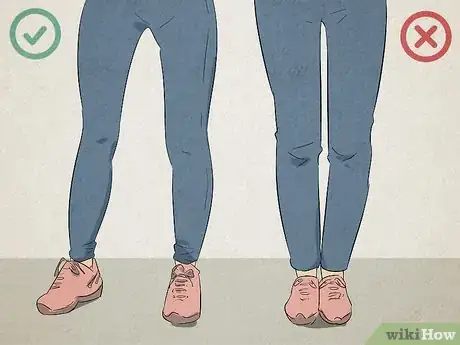
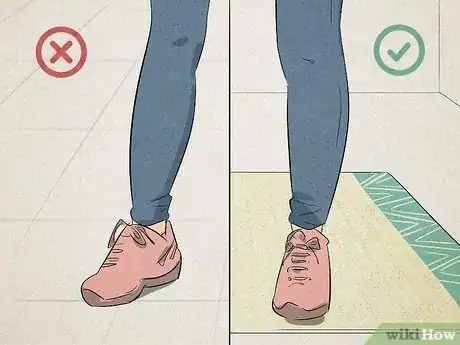
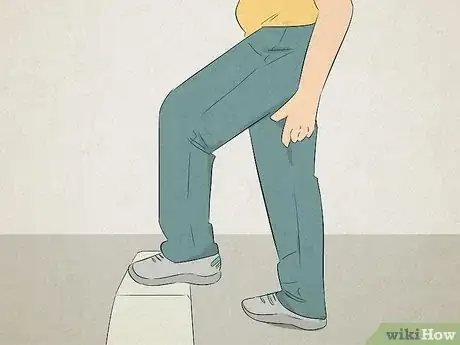
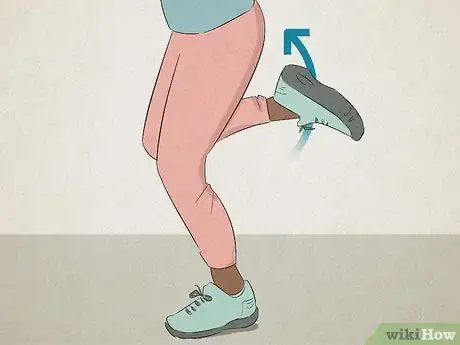

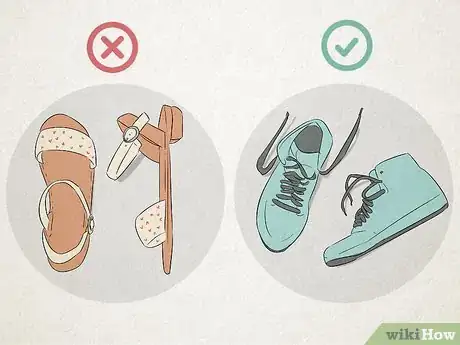
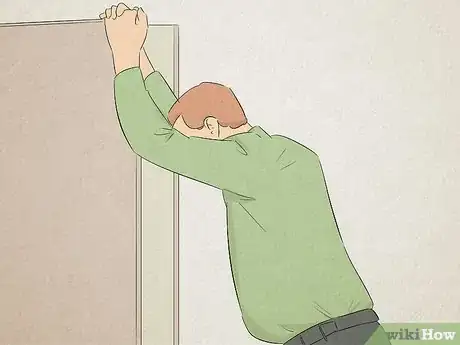
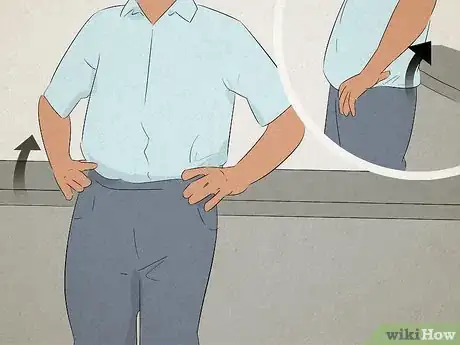
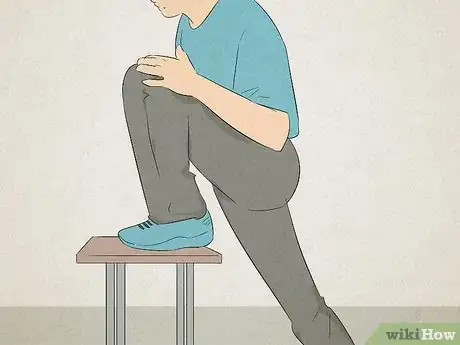
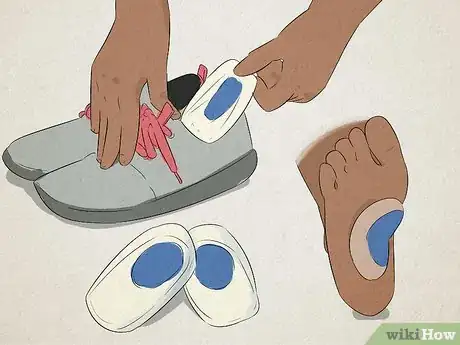
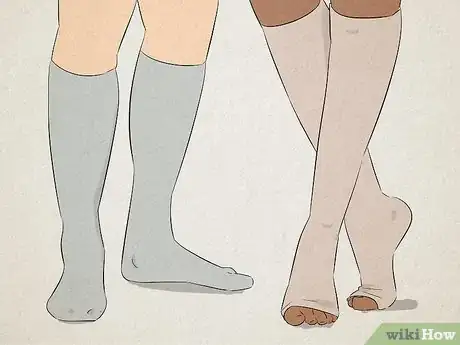
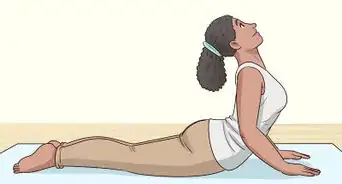



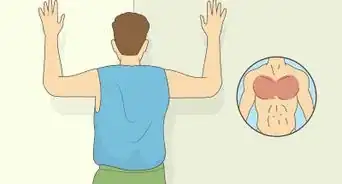





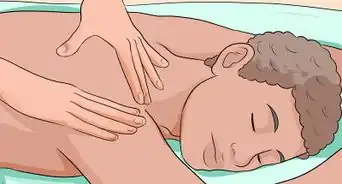
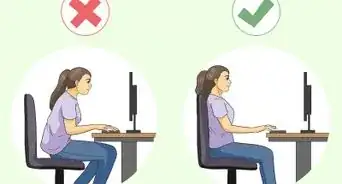










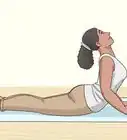






































Medical Disclaimer
The content of this article is not intended to be a substitute for professional medical advice, examination, diagnosis, or treatment. You should always contact your doctor or other qualified healthcare professional before starting, changing, or stopping any kind of health treatment.
Read More...